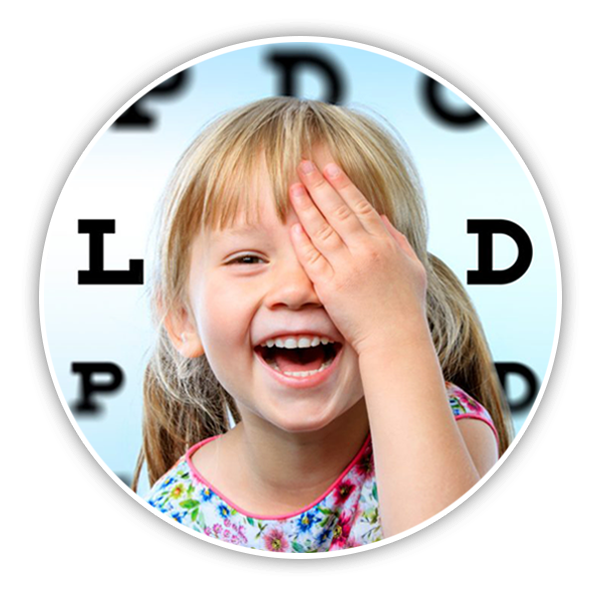Vision Therapy - COMING SOON!
You can think of vision therapy as physical therapy for the eyes and the brain. The neurological aspect is very important because the eyes are direct physical extensions of the brain. We see with our brains and minds, not just our eyes.
Vision therapy is a highly effective non-surgical treatment for many common visual problems such as lazy eye (amblyopia), crossed eyes (strabismus), double vision, convergence insufficiency, and vision conditions that interfere with learning. Individually prescribed In-office sessions introduce a sequence of therapeutic procedures that develop efficient visual skills and visual processing. Specialized lenses, filters, occluders, instruments and digital programs are utilized to maximize benefits by ensuring all visual skills are fully integrated at an automated level.
Vision Therapy Can Benefit Children and Adults
Children
Reading Delays
Any child who loses their place, skips words/sentences, or is not reading up to potential may benefit from vision therapy. By properly developing essential visual skills that have been lacking, a child can typically experience:
Decreased headaches & eyestrain
Increased reading speed & accuracy
Heightened focus & visual stamina
Improved comprehension
Visual Processing
Many children with learning delays and comprehension issues can benefit from vision therapy. The improvements in visual processing skills typically transfer to handwriting, copying, math, reading, and organization abilities. By strengthening key perceptual skills, vision therapy can improve the following areas:
Visual form perception: analyzing size, shape, and correctly identifying letters, numbers and words
Directionality: knowing left from right, especially as it relates to letters and numbers
Visual memory: recalling visually presented information
Visual-motor integration: combining visual information with motor output such as in copying from the board
Visual processing speed: processing visual information quickly and accurately
Adults
Stress Related Problems
Many adults experience visual stress while reading, completing paperwork, or working on the computer. By strengthening key visual skills, vision therapy patients experience:
Better eye comfort
Improved visual efficiency
Increased attention to detail
Heightened focus and stamina
Learning Related Problems
Adults with visual related learning problems have often struggled with these issues since childhood. By improving key visual processing skills, vision therapy helps adults enhance their ability to:
Process visual information accurately
Multi-task, organize, and prioritize
Easily visualize and remember data
Comprehend directions and symbols
Sports Vision Improvement
Strong visual skills are critical to success in sports. Vision therapy can give you the cutting edge, by successfully improving your:
Eye-hand coordination
Visual reaction time
Peripheral vision and depth perception
Eye focusing, tracking, and teaming
Visualization skills

